
Powerful Insight: Iran May Try Further Attacks as Israel Continues Successful Gaza Offensive, Defense Expert Warns — This headline captures the growing global concern around escalating tensions in the Middle East. As Israel intensifies its Gaza City offensive, defense experts caution that Iran may step up efforts to harm Israel through direct and proxy attacks. With security challenges spanning from Tehran’s nuclear ambitions to missile strikes orchestrated through the Houthis in Yemen, this issue remains a central topic for policymakers, investors, and defense analysts.
Israel’s Gaza Offensive and Rising Iranian Threats
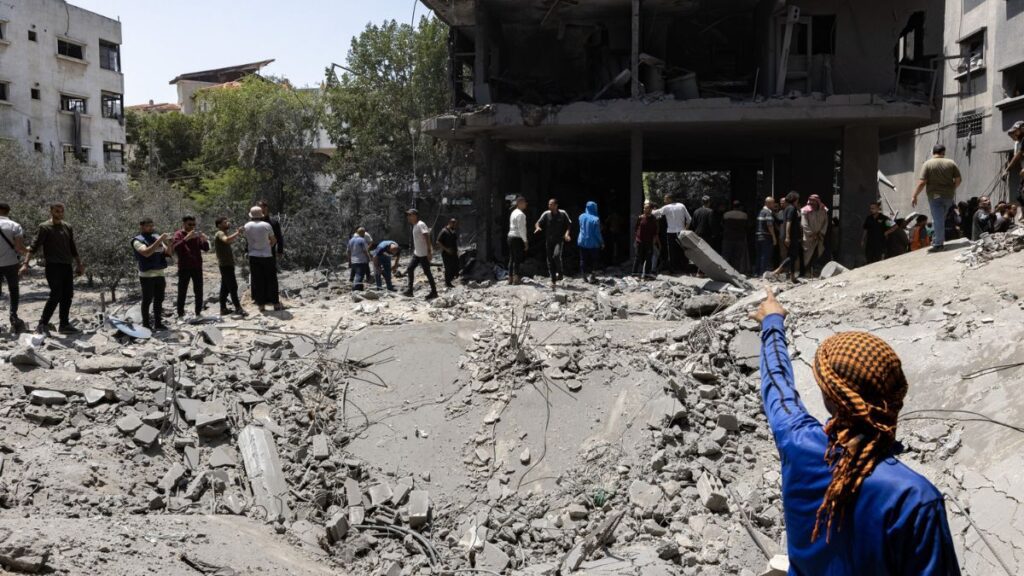
As Israel continues its successful Gaza offensive, military analysts highlight a parallel threat: Iran’s increasing involvement in destabilizing the region. Lieutenant Colonel (res.) Yaron Buskila, CEO of The Israel Defense and Security Forum, explained in a recent interview that Tehran has no intention of staying uninvolved.
According to Buskila, Iran’s strategy is both ideological and operational. “Ideologically, they have no intention of staying uninvolved in this event; it is the very purpose of their existence,” he stated. This indicates that beyond Gaza, Israel faces an expanded battlefield shaped by Iran’s global reach.
Iran’s Nuclear and Missile Program Remains a Core Challenge
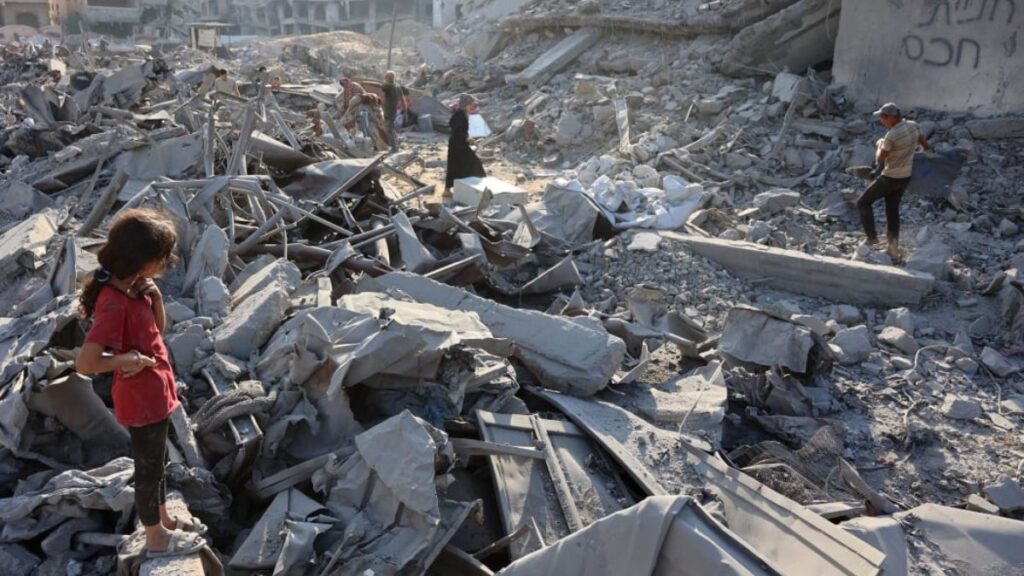
While Israel has delivered significant blows to Tehran’s nuclear program, Buskila emphasized that the threat is far from neutralized. He pointed out that although nuclear capabilities may have been disrupted, Iran’s ballistic missile program and ability to mobilize proxies remain largely intact.
One concerning example is the ballistic missile with a split warhead launched from Yemen, which Buskila attributes to Iranian knowledge and direct guidance. Such developments confirm that Tehran is not just funding but also equipping its regional allies to strike Israel indirectly.
Yemen and the Houthis: Iran’s Proxies in Action
Buskila was clear that attacks launched by the Houthis from Yemen are not independent threats but Iran-directed operations. By leveraging the Houthis, Iran keeps pressure on Israel while avoiding direct confrontation.
He argued that Israel’s response should target not only the launch sites in Yemen but also Iran itself. “Every launch from Yemen must be met with a response—both in Yemen and in Iran,” Buskila stressed. This strategic approach would not only deter proxy attacks but also weaken Iran’s leadership and missile infrastructure.
Timing is Key: Balancing Gaza and Iran
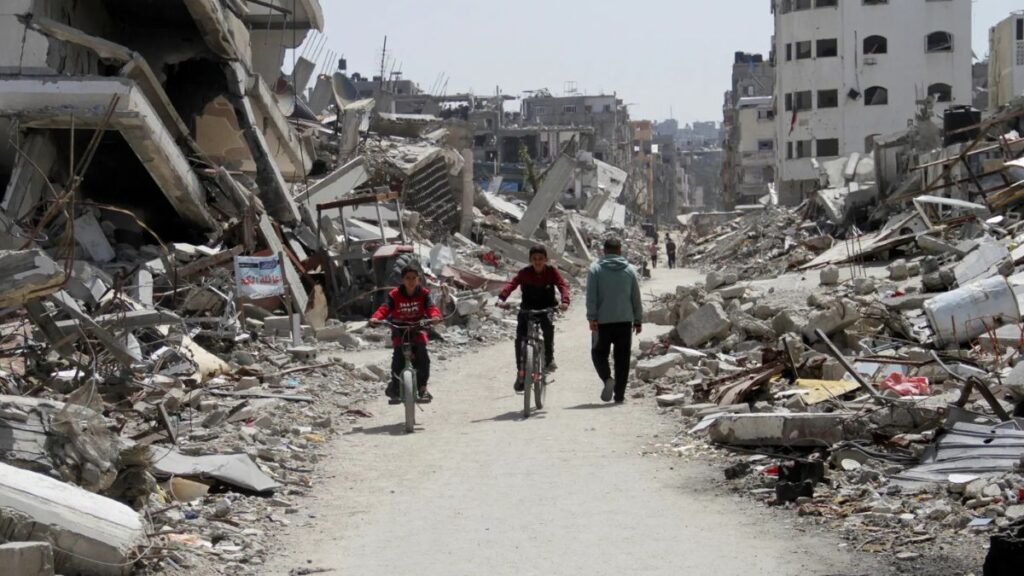
Despite the urgency of confronting Iran, Buskila highlighted the importance of timing. He suggested that Israel must avoid splitting its focus between Gaza and Iran simultaneously. Instead, direct action against Iran should follow the main Gaza offensive, ensuring Israel remains concentrated and effective on each front.
His conclusion was clear: “Sooner or later, action in Iran is necessary, important for removing the long-term threat.” This underscores the growing consensus that Israel cannot ignore Tehran’s regional ambitions and missile programs indefinitely.
Gaza Offensive 2025: Why This Matters Globally
The implications of this conflict extend far beyond the Middle East. For investors and policymakers, Iran’s threats represent a risk factor influencing oil prices, regional stability, global trade routes, and energy security. Cyberattacks, proxy wars, and missile programs add further layers of complexity to an already volatile geopolitical landscape.
For Israel, ensuring long-term security means addressing not just Hamas in Gaza but the root cause of regional destabilization—Iran’s military ambitions and proxy networks
Gaza Offensive: Conclusion
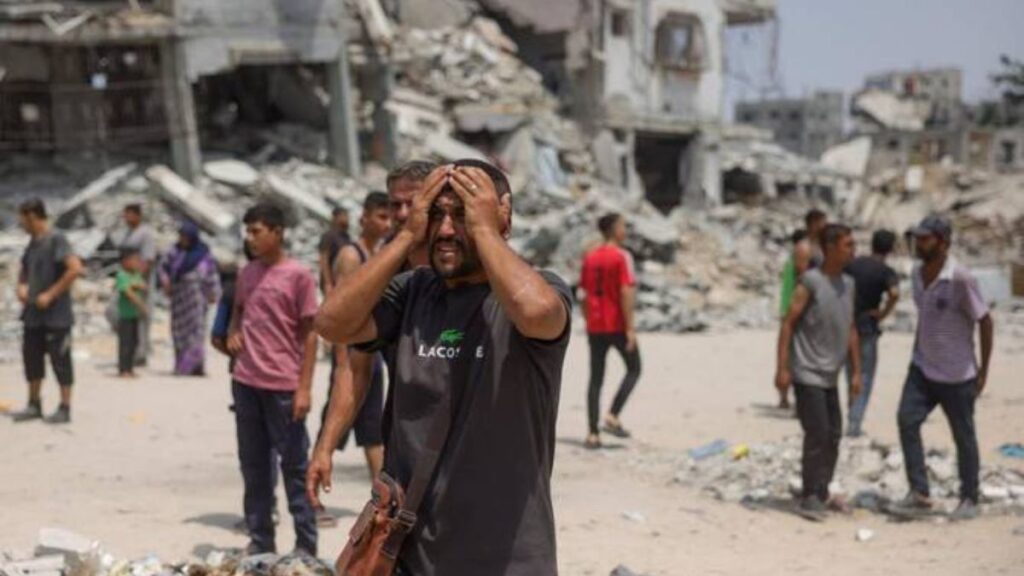
As Israel advances its Gaza City offensive, experts warn that Iran will attempt further attacks, directly or through proxies like the Houthis in Yemen. While Israel has already weakened Tehran’s nuclear program, Iran’s missile capabilities and proxy operations remain active threats. Defense expert Yaron Buskila insists that future strikes must target both Iran and its regional partners to eliminate the long-term danger.
In the coming months, the world will watch closely as Israel weighs the right timing to confront Iran more directly. What’s clear is that the Iran-Israel conflict is far from over, and its outcome will significantly impact regional security and global stability.
Note: All information and images used in this content are sourced from Google. They are used here for informational and illustrative purposes only.
Frequently Asked Questions: Gaza Offensive
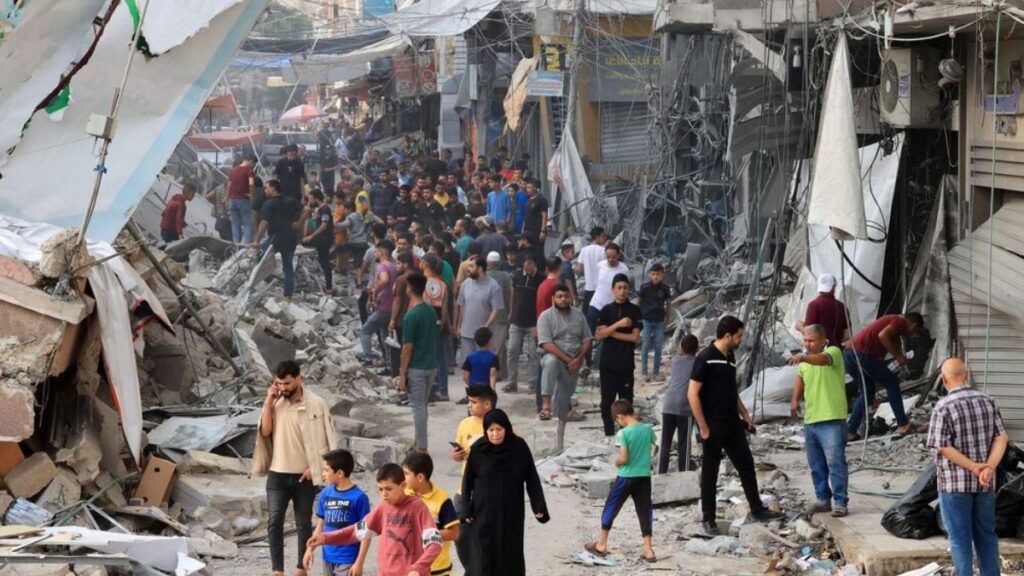
Q1. Why does Iran pose a continued threat to Israel during the Gaza offensive?
Iran remains ideologically and strategically committed to opposing Israel. According to defense expert Yaron Buskila, Tehran actively supports proxy groups such as the Houthis in Yemen and militias in Iraq. These groups are used to launch attacks on Israel, ensuring that Iran remains involved even without direct confrontation.
Q2. Has Israel weakened Iran’s nuclear program?
Yes, Israel has dealt significant blows to Tehran’s nuclear program. However, Buskila notes that while nuclear development has been disrupted, Iran’s ballistic missile capabilities and proxy operations have not been sufficiently neutralized.
Q3. How is Yemen connected to Iran’s strategy against Israel?
The Houthis in Yemen serve as a proxy for Iran. Missile launches from Yemen, including advanced weapons like split-warhead missiles, are directed with Iranian knowledge and guidance. Buskila stresses that these attacks should not be seen as independent threats but as Iran’s coordinated actions.
Q4. What does Buskila recommend in response to Houthi attacks?
Buskila suggests that every missile launch from Yemen must be met with a dual response—targeting both the launch sites in Yemen and Iran’s leadership and missile programs. This, he argues, would deter further aggression and weaken Tehran’s influence.
Q5. Will Israel strike Iran directly in the near future?
Buskila did not confirm any immediate plans for Israeli strikes inside Iran but emphasized that such action is necessary sooner or later. He explained that timing is critical, and Israel must avoid dividing attention between Gaza and Iran until the main Gaza offensive is complete.
Q6. Why is timing important in confronting Iran?
Buskila highlights that Israel must carefully choose when to act against Iran. Engaging both Gaza and Iran simultaneously could stretch resources and weaken focus. The strategy, therefore, is to complete the Gaza operation first and then consider direct action against Tehran’s missile and leadership infrastructure.
Q7. What is the long-term implication of Iran’s involvement in regional conflicts?
Iran’s continued support for proxy groups, missile programs, and nuclear ambitions poses a lasting threat not only to Israel but also to global security and energy stability. Addressing Tehran’s role is crucial for reducing long-term regional instability.






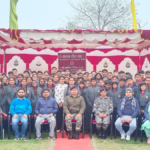
Leave a Reply